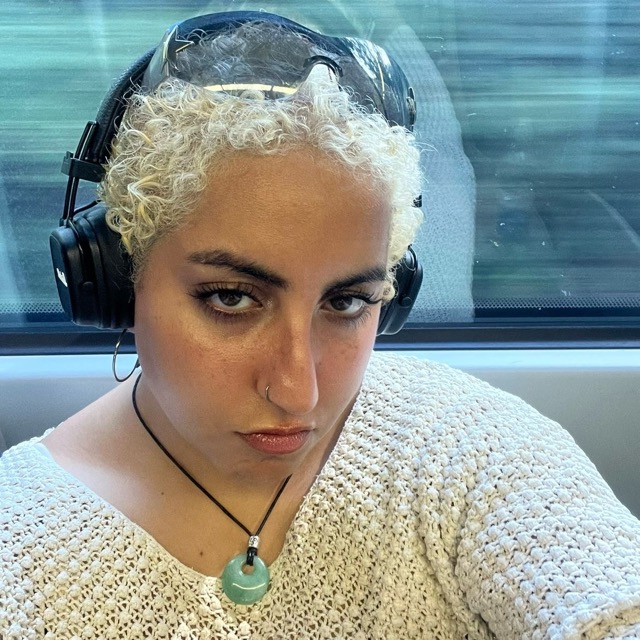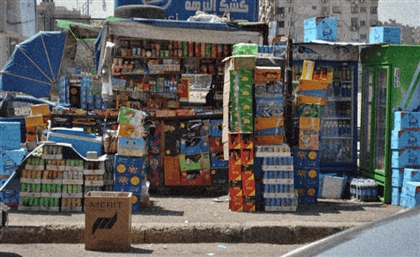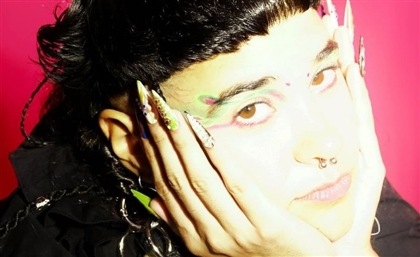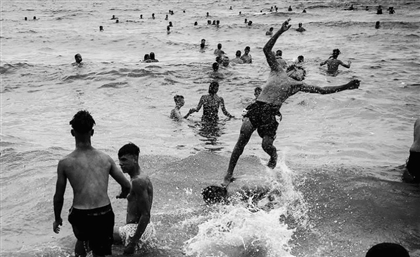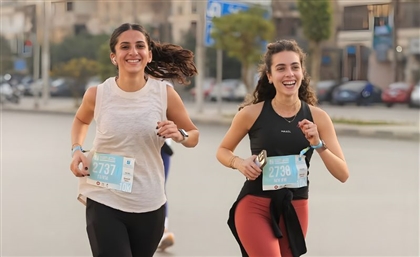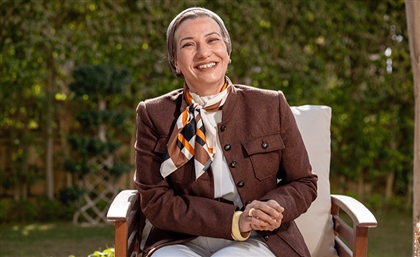From El-Gamaliya to the Olympics: The Story of Boxer Mohamed Reda
From Cairo’s backstreets to the Olympics in Athens, Mohamed Reda opens up about discipline, family, and the academy where he now trains a new generation to dream with grit.
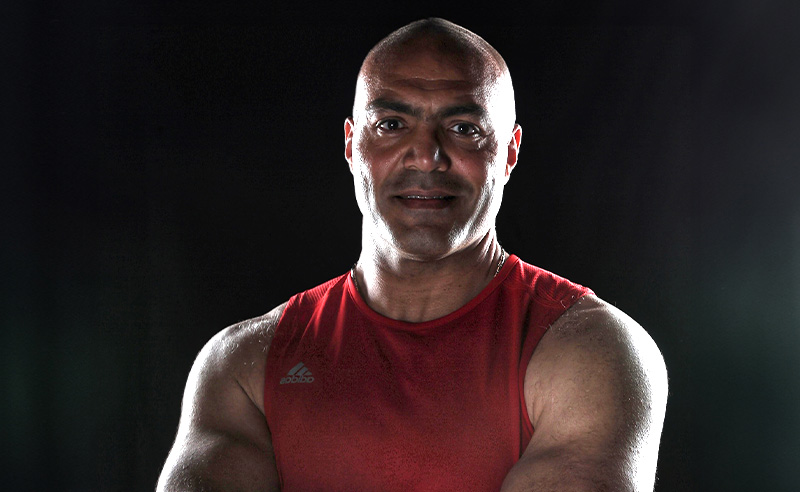
Here is a conversation with Olympic boxer Mohamed Reda, written by someone whose dad has been telling this story for years... Growing up, my dad never ran out of stories about school pranks, scraped report cards, and friends who became family. But one story always stood out. He had a friend, a real friend, who went on to become an Olympic silver medallist in boxing. The guy’s name was Mohamed Reda.
For years, I thought the story might be exaggerated, until I looked him up and found out he’s real, he’s famous, and he runs a professional boxing academy in Cairo. And eventually, I got the chance to sit with him for an interview. My dad was probably more excited than Reda himself when I told him.
Reda welcomed me with the same calm energy that has shaped his whole career. “I’m a son of El-Gamaliya, Haret El-Maghrabaleen, to be specific,” he said. “That neighbourhood taught me that being a man doesn’t come from how you look. It’s how you carry yourself. People there helped each other just because it was the right thing to do. That’s what I grew up around. That’s what shaped me.” He grinned. “Also, I still remember that foul cart on the corner. Mornings with foul and chilli oil… nothing like it.”
His entry into boxing wasn’t really planned. “It looked like a coincidence. My coach lived in our neighbourhood and wanted to do my dad a favour. But the moment I put those gloves on, something clicked. I felt like I’d found something I didn’t know I was looking for.” Reda still remembers the first real match. The nerves, the smell of sweat, the shouting coach, the shaky legs. “It was at Darb Al-Ahmar Club, my first championship. Everything about that day stayed with me. That was the first time I felt like I’d started writing my name in the sport.”
He’s worn gloves with the Egyptian flag stitched into them. When I asked what that meant, his answer was simple. “Every time I put them on, I felt the weight of the country. You carry more than your own goals. It’s an honour. A responsibility.”
In 2004, he won silver for Egypt in the Athens Olympics. We chatted a lot about it, but what really stood out to me was him saying, “People see the medal. What they don’t see is the years of training, the injuries, the days I went to bed hungry, the nights I was in pain. They don’t see what you give up. You miss moments with people you love because you believe in something no one else can see yet.”
After Athens, everything changed - and didn’t.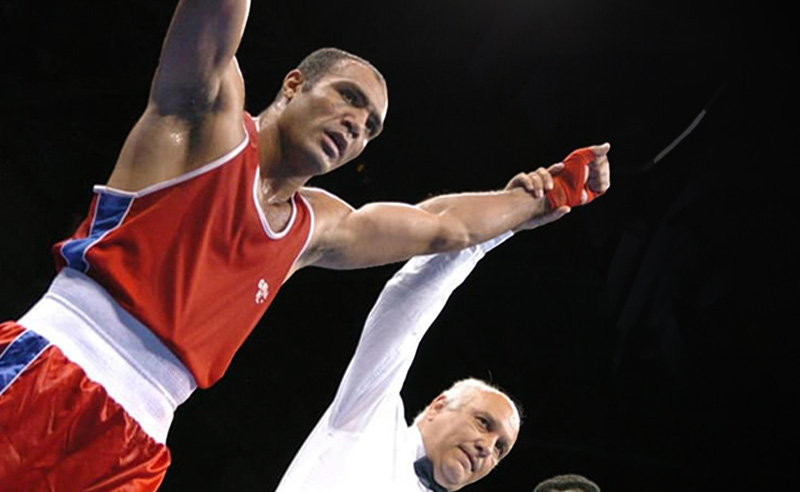
“People started calling me a star,” he said. “But I stayed Mohamed from El-Gamaliya. What changed was the responsibility. What didn’t change was my faith in God, my respect for my parents… and my love for foul with chilli oil.” Despite offers to go pro in Europe and the US, Reda chose to stay. “I had an eye issue. And more than that, I wanted to set an example. I wanted to build something here. Not everything is about the money.” Instead, he built a boxing academy, which was the next step in a lifelong goal.
“I wanted to train my son differently from how I was trained. I stopped competing, but I didn’t stop dreaming. The academy became that dream, a place to shape people as much as athletes.”
The lessons go beyond the ring.
“Victory’s great,” he said. “But what really matters is consistency. Show up when you're tired. Respect your opponent. Respect yourself.”
He sees parts of himself in the new generation. What surprises him most is how quickly they grow. “This generation? They’ve got energy. They’ve got guts. All they need is someone to steer them.”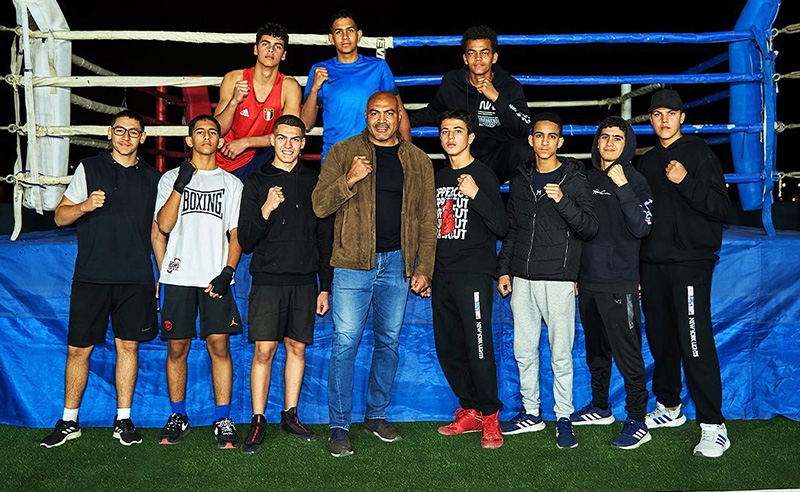
Over the last few years, more women have joined the sport. For Reda, this was an opportunity to evolve his training. “I started listening more. Every girl has her own story. Boxing, for some, carries the weight of protection, the spark of confidence, and the breath of freedom beyond the sport alone. We adjusted our training to focus on skill, self-defence and respect.”
The academy now offers sessions exclusively for women. The experience has changed him as much as it’s changed them. “Give a girl a safe environment, and she’ll surprise you. That’s what I’ve seen. Greatness comes from will; gender has nothing to do with it. Every time one of them pushes through fear, she teaches me something new.”
When I asked about a moment from his career that stayed with him - even though it never made the headlines - he didn’t hesitate. “After losing a championship, I came home feeling like I wasn’t cut out for it any more. I told myself I was done. But when I walked in and saw my wife’s eyes, she didn’t say a word, but the belief she had in me… that’s what brought me back. No one wrote about that. But that moment made me a champion.”When I asked Reda about his definition of strength or power, he answered, “Strength is getting back up when you fall. It’s staying calm when someone tries to get under your skin. It’s holding onto your humanity when things get tough. The real strength? It’s in your heart and your head, not in your gloves.”
Before I left, I asked what he hoped kids would take from his story. “I hope they see that champions rise through what they build, step by step. Built from every tough moment, every ‘I can’t’ that turns into ‘I did.’ Boxing is a big school. It teaches you to face yourself. And if you’ve got a dream - any dream - you’ve got to believe it can happen. There’s always room for another Mohamed Reda.” After the interview, I called my dad to tell him how it went. He said, “I told you he was the real deal.” And honestly? He really is.
- Previous Article Egyptian Reconstruction Projects in Libya Surpass USD 5 Billion
- Next Article Monochrome Monday: The Chartreuse Edition







